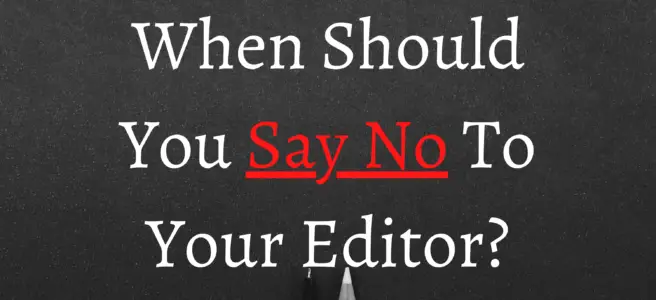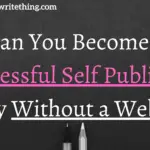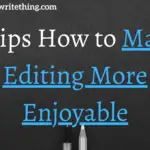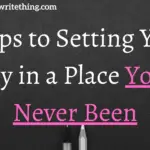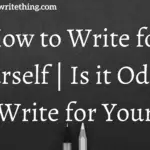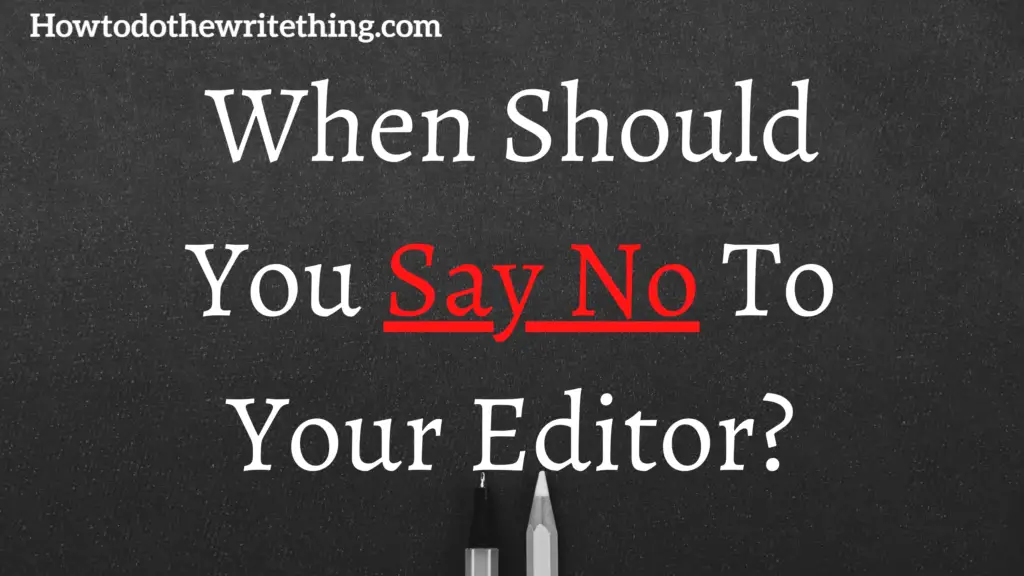
When Should You Say No To Your Editor?
Should we ever say no to an editor? What if it’s our publisher’s editor?
What if we hired them ourselves?
When can we tell that they are no longer giving good advice and feedback but it’s more negative criticism and control than positive? And if we should say no, how on earth do we do that without ruffling unnecessary feathers?
Hopefully, some of these thoughts will help you see when it’s a good idea to say, “No.”
When you’ve worked with many editors.
It’s not always a good idea to feel like the first or second editor you’re working with “doesn’t know what they’re talking about.”
Be careful. Be humble. Be willing to take the time to grow in your craft enough to say maybe this person has a good idea even though I don’t like how much they want me to cut out of my story.
On the flip side, say you’ve worked with many editors and have had great experiences, then one shows up that is a trite awful to work with. This could be a good red flag to fire them or step away from the project.
Trust your gut if you have a lot of experience under your belt.
Interested in starting a blog of your own? Check out Bluehost.
When the editor appears more controlling than helpful.
This is definitely a red flag. If they try to get you to change just about everything in the story, they don’t actually think your story is good. They think a different story like yours would be better.
On your first publishing job, you might consider this okay, because for most of us we gotta climb the ladder somehow. And mostly everyone has to “put in their dues.” So it’s your choice at the end of the day what you’re willing to put up with.
Majority rules are that most editors you work with won’t be controlling monsters.
If they have an “I am right no matter what” complex.
Some editors you work with will have a demeanor that is more reasonable. You can bounce ideas off each other.
You can work through cuts instead of “it’s my way or the highway.”
When you have many editors telling you a certain scene isn’t working it is very likely that there is something wrong with the scene but when you have someone that is “never wrong.” Watch out.
These types of editors aren’t in it for your best interest or your story’s. They are confused and think that if they ever admit a fault that it’ll look bad on them.
Interested in starting a blog of your own? Check out Bluehost.
Be careful.
It’s one thing if it’s a beta reader or an editor you hired, but if it’s the editor your publisher set you up with, tread lightly.
Especially if you like your publisher. If the publisher and the editor are hard to work with it might be time to consider stepping in a new direction.
But if it’s just your recent editor then try to politely talk to your publisher about getting a different editor assigned to you.
If you go through a string of editors and they all seem to have problems, more likely you have a “you” problem. Not an editor problem and none of them will ever be good enough.
Writing and editing should be mostly enjoyable.
Authors have to write to put food on the table, but for most writers, the process should be slightly fulfilling.
I personally don’t believe that our work in life should be the only thing that fulfills us, but it does seem okay to enjoy at least most of your work.
I understand that’s not possible for everyone at every season of life.
But if you were able to complete your story and get a publisher into a contract with you. Part of me thinks that you enjoy writing and storytelling. You enjoy the process of being creative and using your imagination to create.
That said, it’s not preposterous to think that working with someone else, an editor, in making your story even better should be a terrible process.
Interested in starting a blog of your own? Check out Bluehost.
Final Thoughts
Be careful not to pull the trigger too quickly. Take your time with the editor. Maybe they had a bad day. Ask them directly why they want you to make the changes. If they lose their patience with you, maybe it would be best to work with someone more understanding.
Take time to gain experience working with editors. They are just people. It’s usually hard to let someone else come along and say, “You have to cut this scene out.” That’s almost never easy.
But don’t be afraid to reason with them and make sure it’s the best decision for the book. Because at the end of the day both you and your editor want the story to be its best version of itself.
Hope this helps!
Happy writing!
Another Post you Might like:
Mythical Creatures | 7 Tips on How to Write Mythical Creatures
Other Popular Posts you might enjoy:
5 Tricks How to Hide Your Villain Right Before Their Eyes
10 Tips How to Write Villains that Play Mind Games with Their Victims
4 Tips How to Write your Character Hitting Rock Bottom
10 Toxic Bad Habits That’ll Crush Your Fictional Character’s Relationships
How to Write From Your Villain’s Mind.
How To Write 4 Scenes That Reveal Who Your Character Is Seamlessly
Psychopath: How to Write The Perfect Psychopath
8 Tips How to Write the Perfect Sociopath
Fictional Characters: 28+ Bad Habits to Introduce to Your Fictional Characters
List of 10 Weapons for Fictional Characters
List of 10 Bad Habits Fictional Characters Need Help Breaking
Resources:
How to Start a Blog in 11 Simple Easy Steps in 2020
How to Write a Book: 32 Tips | Your MASSIVE Guide How to Write a Book
Define Self-Esteem for Writing Characters: 10 Ideas
Covert Narcissist and Why You Should Write One
Inspiring Quotes Posts:
Inspiring Quotes | 101+ Inspirational Quotes to Motivate You Today
190+ Inspirational Quotes for Women
303+ Funny Inspirational Quotes
115+ Inspirational Quotes in Short
103+ Quotes About What is Love
This post:
When Should You Say No To Your Editor?
Interested in starting a blog of your own? Check out Bluehost.
After checking out Bluehost, see how we made a profit FAST with our blog and how you can too: Our #1 Easy way that we made a profit with our blog on year 1, not year 5.
Need a Cheaper Plan? Try DreamHost.
Try Grammarly, The Free tool that should be in every writer’s toolbelt.
When Should You Say No To Your Editor?
Enjoying When Should You Say No To Your Editor? Take a moment and consider sharing this social-friendly image to say thanks and feel free to comment with your thoughts below! 🙂
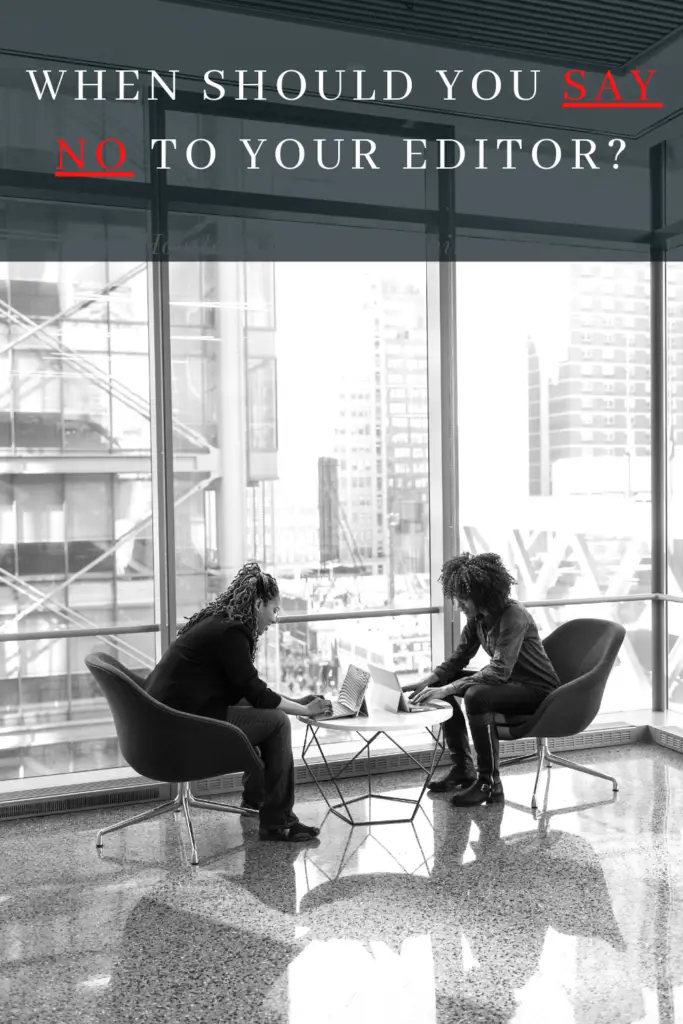
Make sure your posts are readable. Use this readability score check
Want to check out a writer’s community to test your writing and get feedback?
When Should You Say No To Your Editor?
Enjoying When Should You Say No To Your Editor? Take a moment and consider sharing this social-friendly image to say thanks and feel free to comment with your thoughts below! 🙂
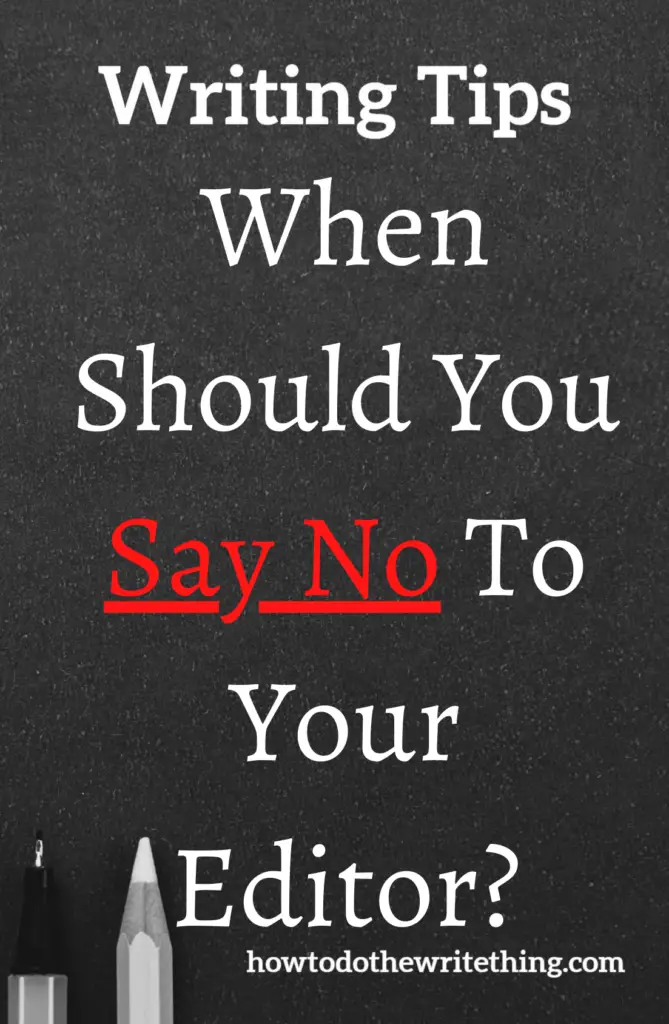
Interested in starting a blog of your own? Check out Bluehost.
After checking out Bluehost, see how we made a profit FAST with our blog and how you can too: Our #1 Easy way that we made a profit with our blog on year 1, not year 5.
Need a Cheaper Plan? Try DreamHost.
Try Grammarly, The Free tool that should be in every writer’s toolbelt.
Check out these FREE trial resources from Amazon for when you work from home (or are stuck at home 🙂 ) As an Amazon associate, if you do sign up or buy anything using Amazon links from our site we make a commission at no extra cost to you.
Free Prime Membership Trial:
Try Amazon Prime 30-Day Free Trial
Try Prime Discounted (Free Trial)
Make your Free Amazon Wedding Registry:
Create an Amazon Wedding Registry
We hope you enjoyed: When Should You Say No To Your Editor?
